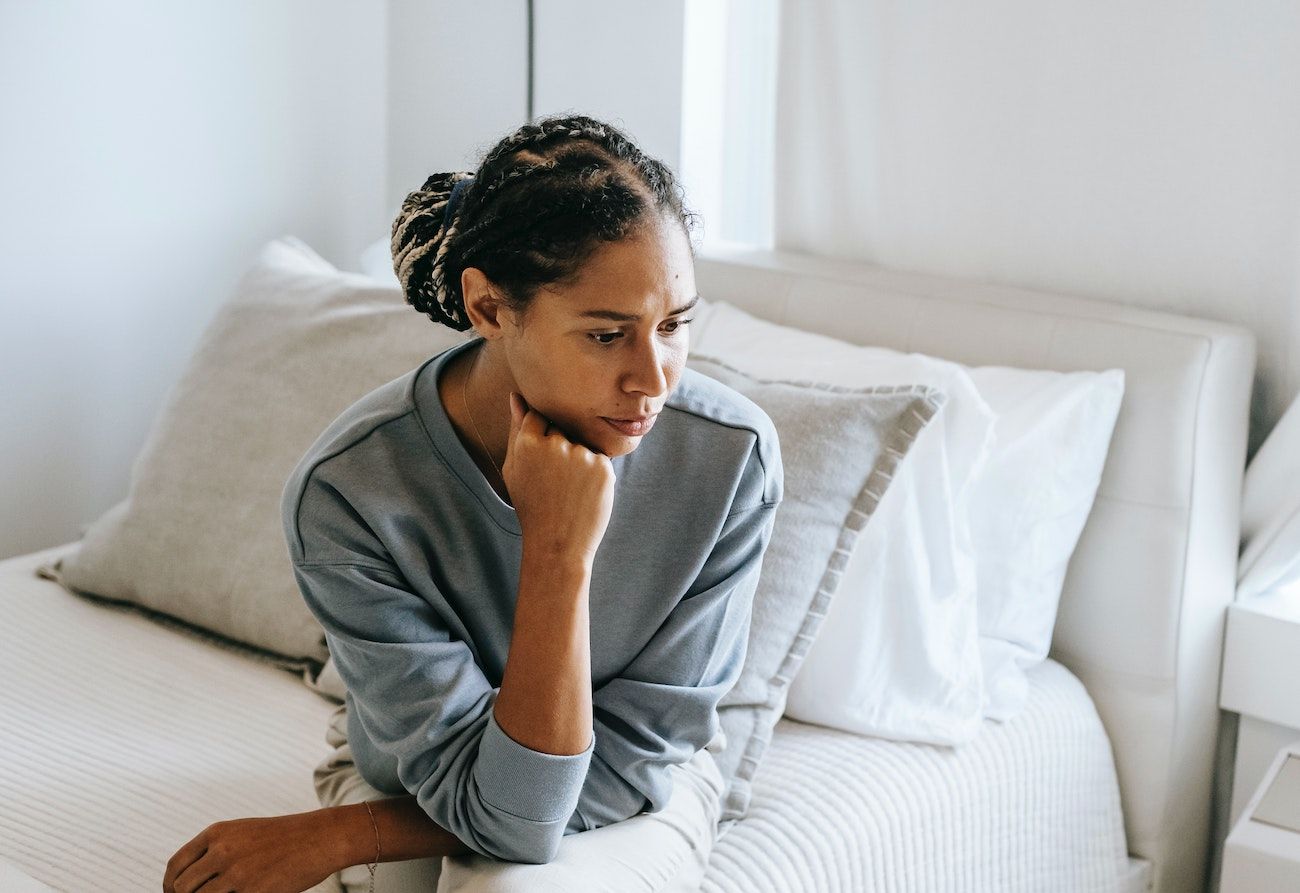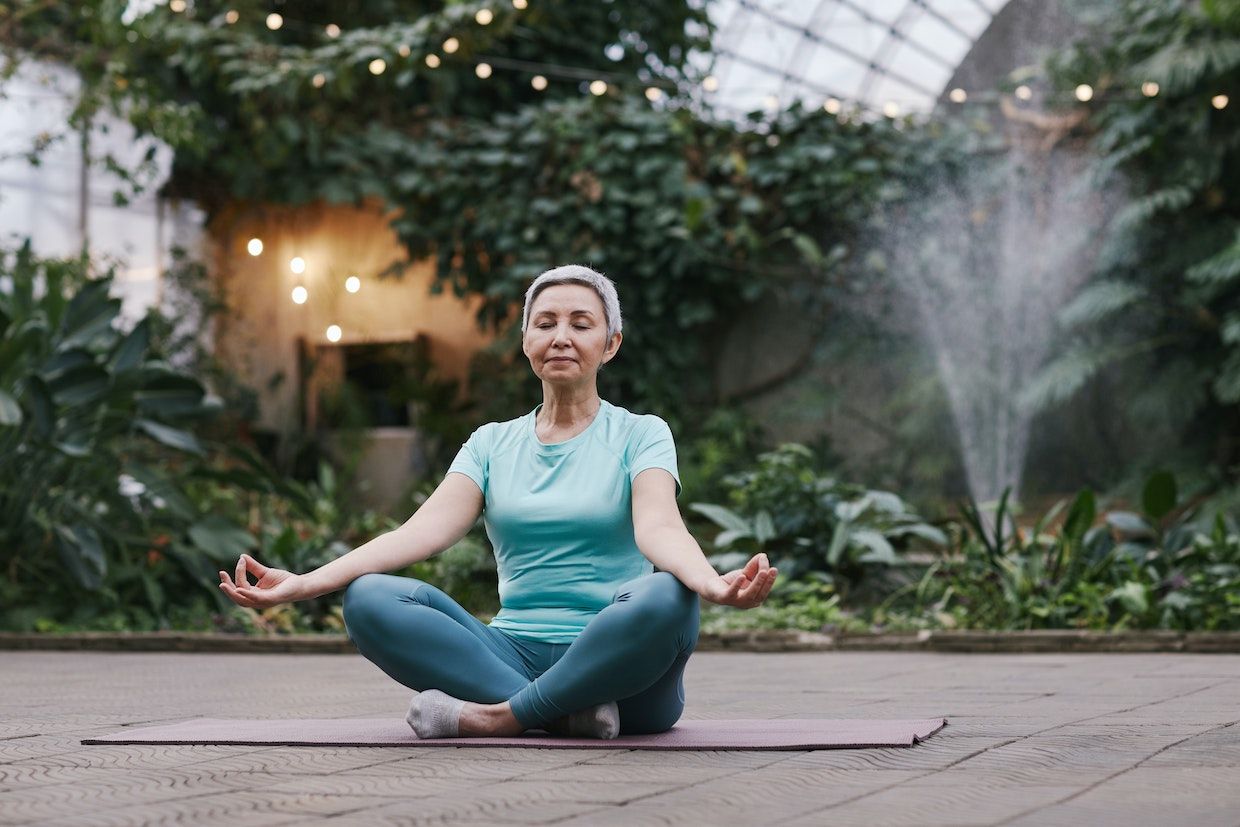When you find yourself stuck in a state of fight or flight, with anxiety causing your heart to race, use these five methods to regain calm and control
You wake as the sun rises in the morning; you feel the warmth of the animal skin covering your body as you lay on the mud floor of the hut you call home. Nearby, you hear other tribe members rousing. The birds sing in the trees that surround you. You get up and prepare yourself to hunt for food. There is nowhere to work here, your life’s purpose is to survive.
Finding food is intensely challenging, and you are the source of food for your animal cohabitants. Meat is rare, and it might take you and your hunting party days to arrive home with something to feed the tribe. Your body must work efficiently to keep you safe from harm. Danger lurks everywhere, but your body is powerful. When your brain recognises an imminent threat, it will activate your fight or flight response, so you can run or fight. This innate skill keeps you alive on your dangerous missions.
And then you come back to real life where, in your modern society, there is very little physical threat to your daily life. Food comes from the supermarket down the road, and your next-door neighbour probably isn’t going to eat you.
Frustratingly though, your brain does not differentiate between a genuine threat to your life and a threat to your ego. It cannot tell the difference between real and imaginary. It holds onto previous experiences, and uses them to determine how to behave in the future. So, when you have a presentation to give at work, or a daunting social event, your brain will react similarly to how it would when trapped by a killer animal.

As you now know, anxiety is the body entering the fight or flight response. This involves activation of the autonomic nervous system, and an increase in your heart rate. It makes a lot of sense; your body needs to pump the blood to all the muscles required to fight or flee the threatening situation.
Once the threat passes – you win the fight, or escape – your body should return to the default state, and your heart rate should slow. However, if the apparent danger is not an actual threat to your life – you cannot physically run away or fight – but the perceived threat is persistent, you will remain in the anxious (fight or flight) state.
How to stop heart palpitations due to anxiety
You can use hypnotherapy or other forms of talking therapy to manage anxiety. However, in the moment, you want to know how to stop your heart from doing what it is doing. It is, therefore, important to know how to calm a racing heart from anxiety, when you have not yet found the time to deal with the anxiety overall.
The best trick to slow down your heart rate is to make your out-breath longer than your in-breath. When you inhale, you stimulate your sympathetic nervous system, which increases your heart rate. When you exhale, you stimulate your parasympathetic nervous system, which decreases your heart rate. By exhaling for longer than your inhale, you slow your heart rate. Try counting from one to seven as you inhale, and one to 11 as you exhale.
How to slow down heart rate anxiety
Anxiety often causes anxiety. For example, the faint feeling of anxiety can frighten you so much that your anxiety grows, and everything feels much stronger.
Heart rate anxiety happens when your slightly faster heartbeat makes you fear there is something terribly wrong. Your brain takes this belief on, and strengthens the response. The fast heart rate gets stronger, and you find yourself in a vicious circle. When you make the active decision to use one of the following techniques to slow down your heart rate, you will also lower heart rate anxiety.
How do I know if I have heart problems or anxiety?
There is no harm in a quick trip to the doctor to make sure your heart is in working order. Anxiety is more common than you might think, and certainly more likely than heart problems, but your GP will happily check your heart for you to make sure there is nothing wrong.
If your heart rate is quickened due to anxiety, you can use the following tricks to slow down your heart rate and feel more comfortable:
1. Breathing
As per the previous example, when you breathe, make your exhale longer than your inhale to slow your heart rate.

2. Abdominal breathing
Place one hand on your belly button, and another on your chest. Breathe down into the belly button space, so this hand rises rather than the one on your chest. Abdominal breathing is the most efficient way to breathe. However, ‘cheating’ by breathing into your chest often becomes the normal way.
This is harder when you are in an anxious state, because your chest muscles will tighten to help you run or fight. The tightness further fuels the fear and increases the anxious feelings. Try to consciously make abdominal breathing your ‘normal’ way to breathe.
3. Mindfulness
Hypnotherapy sessions with a therapist knowledgeable about mindfulness will help you learn how to live more mindfully. This will enable you to take control of your thoughts, so you are less likely to drift into the fight or flight response.
4. Meditation
Meditation is an effective tool to take your body out of the anxious state, and move you into the default calm state, slowing your heart rate as a result. This is something you should do daily. If time is a restriction, a five-minute meditation is preferable to nothing.

5. Exercise
Exercise is beneficial for all of you – mind, body, and spirit. There is no requirement to exercise intensely, a 30-minute walk each day is good enough, just get your body moving where you can.
Anxiety can crop up when we least expect it, but with these simple yet effective tips, hopefully next time it arises, you’ll feel more prepared to reclaim some calm, and return your heart rate to healthy levels.


Comments